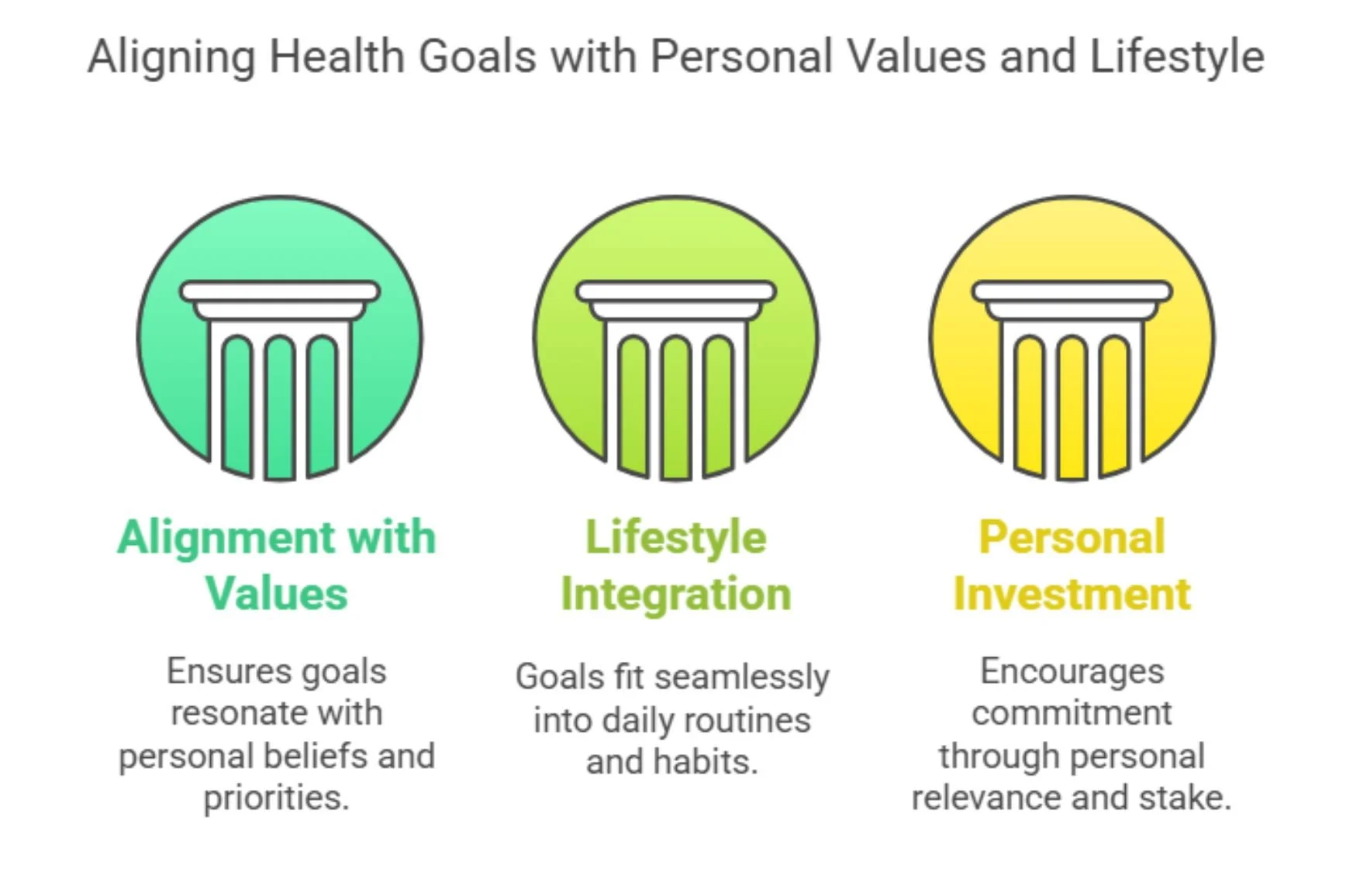Goal Setting and Accountability: Tools for Certified Health Coaches
Setting and achieving health goals is crucial for a successful health coaching practice. Certified health coaches must understand the tools and strategies that help clients set realistic goals and stay accountable. This blog explores key techniques to enhance goal setting and accountability, ensuring better client outcomes.
Understanding the Importance of Goal Setting
Setting clear and achievable goals is the foundation of success in any health and wellness journey. Without a structured plan, clients may feel overwhelmed, lose motivation, or struggle to measure progress. Effective goal setting provides a roadmap that guides clients toward their desired outcomes while maintaining focus and accountability.
A well-defined goal acts as a source of motivation, giving clients a sense of purpose and direction. When clients know what they are working toward, they are more likely to stay engaged and committed to their health and wellness journey. Moreover, structured goals help break down larger objectives into manageable steps, making them more attainable and less intimidating.
One of the most effective goal-setting methods is the SMART goal framework—a science-backed strategy that enhances clarity and commitment while increasing the likelihood of success. This framework ensures that every goal meets five essential criteria:
1. Specific – Clear and Well-Defined Goals
A goal should be precise and unambiguous so that the client knows exactly what needs to be achieved. Vague goals, such as "get healthier" or "exercise more," leave too much room for interpretation, making them difficult to follow. Instead, a specific goal provides clarity and direction.
Example: Instead of saying, "I want to exercise more," a specific goal would be, "I will walk for 30 minutes every day after dinner."
A specific goal outlines the who, what, when, where, and why, helping clients stay focused on their objectives.
2. Measurable – Tracking Progress for Motivation
A goal should include a measurable component that allows clients to track progress. Without measurable criteria, it becomes challenging to determine whether progress is being made.
Example: "Drink 8 glasses of water daily" is a measurable goal because the client can count their intake throughout the day.
Measuring progress builds motivation and confidence. When clients can see their improvements over time, they feel encouraged to continue working toward their goals. Additionally, measurable goals help health coaches assess whether adjustments are needed to keep clients on track.
3. Achievable – Realistic and Within Reach
While setting ambitious goals can be inspiring, unrealistic expectations can lead to disappointment and frustration. Goals must be challenging yet attainable based on the client’s current abilities, resources, and lifestyle.
Example: If a client is new to fitness, setting a goal to run a marathon within a month may be unrealistic. A more achievable goal would be, "Jog for 15 minutes three times a week and gradually increase duration."
When clients set realistic goals, they build momentum as they experience small victories along the way. This approach increases confidence and prevents discouragement from setting in.
4. Relevant – Aligning Goals with Personal Aspirations
Goals should be meaningful and relevant to the client’s overall health aspirations and lifestyle. If a goal does not align with their values or priorities, they may struggle to stay committed.
Example: If a client is focused on improving heart health, a relevant goal would be, "Eat a heart-healthy diet by including more vegetables and lean proteins in meals."
A relevant goal ensures that clients are personally invested in the outcome, increasing their likelihood of staying committed in the long run.
5. Time-Bound – Creating a Deadline for Accountability
Every goal should have a specific timeframe for completion. A deadline instills a sense of urgency and helps clients stay accountable. Without a timeframe, goals may be indefinitely postponed or deprioritized.
Example: "Lose 10 pounds in three months" provides a clear timeline, making it easier to plan milestones and track progress.
Setting a time-bound goal encourages clients to take consistent action, preventing procrastination and ensuring steady progress.
Tools for Effective Goal Setting
Health coaches can leverage various tools to facilitate structured goal planning and progress tracking:
To ensure clients stay on track with their health and wellness goals, health coaches can leverage various tools that enhance organization, motivation, and accountability. These tools help clients break down their objectives into actionable steps, track progress, and stay engaged throughout their journey.
1. Health Coaching Software – Streamlining Goal Tracking and Engagement
Digital platforms designed for health coaching simplify goal setting and client engagement by offering structured tracking, automated reminders, and personalized feedback. These tools allow health coaches to monitor clients’ progress, provide guidance, and adjust goals as needed.
Popular Health Coaching Platforms:
CoachAccountable – Allows coaches to set and track client goals, provide feedback, and automate progress reminders.
My PT Hub – Offers goal tracking, progress visualization, and communication tools for coaches and clients.
Nudge Coach – Uses habit tracking and personalized check-ins to help clients stay accountable.
By integrating coaching software into their practice, health professionals can enhance client communication, monitor adherence to health plans, and provide real-time support.
2. Goal Setting Worksheets – Structuring Goals for Success
Structured goal-setting worksheets help clients break down their objectives into smaller, actionable steps while tracking progress. These worksheets often include sections for defining SMART goals, identifying obstacles, and setting milestones.
How Goal Setting Worksheets Help:
Provide a clear step-by-step plan for achieving goals.
Help clients identify potential challenges and create solutions in advance.
Allow clients to document their progress and celebrate milestones.
Health coaches can provide printed or digital worksheets tailored to fitness, nutrition, mental wellness, or habit formation to help clients stay organized and committed.
3. Mobile Apps – Reinforcing Daily Habits and Tracking Progress
With the rise of mobile health technology, habit-tracking apps offer clients an easy and accessible way to stay consistent with their wellness goals. These apps provide reminders, visual progress tracking, and motivational prompts to keep users engaged.
Recommended Goal Tracking Apps:
Strides – Tracks multiple habits, with customizable reminders and goal progress charts.
Habitica – Gamifies habit formation by rewarding users with in-app rewards for completing tasks.
HabitBull – Provides detailed habit tracking, streak analysis, and performance insights.
Using mobile apps empowers clients to integrate goal-setting into their daily routines, reinforcing positive behaviors and ensuring accountability even outside coaching sessions.
4. Vision Boards – Visualizing Goals for Motivation
A vision board is a powerful visualization tool that helps clients stay inspired and focused on their goals. By compiling images, quotes, and affirmations that represent their desired outcomes, clients create a visual reminder of their aspirations.
Benefits of Vision Boards:
Strengthens emotional connection to goals, increasing motivation.
Serves as a daily visual cue to reinforce positive behaviors.
Encourages long-term commitment to personal wellness goals.
Clients can create physical vision boards with magazines, printouts, and sticky notes, or opt for digital boards using platforms like Canva, Pinterest, or Google Slides.
5. Journaling – Encouraging Self-Reflection and Accountability
Journaling is a powerful tool for self-awareness that allows clients to document their health journey, reflect on progress, and recognize areas for improvement. Keeping a goal journal fosters a deeper connection with their wellness aspirations.
Ways Clients Can Use Journaling for Goal Setting:
Track daily habits and progress toward goals.
Identify challenges and develop strategies to overcome them.
Express emotions and reflections, reinforcing positive mindset shifts.
Encouraging clients to write in a journal consistently helps them stay mindful of their progress, recognize patterns, and celebrate achievements.
The Role of Accountability
Accountability plays a critical role in achieving long-term success. Coaches can implement several strategies to enhance accountability:
Regular Check-ins – Weekly or bi-weekly meetings help assess progress and address challenges.
Support Groups – Community encouragement fosters motivation and shared learning.
Accountability Partners – Peer support enhances commitment and consistency.
Progress Tracking Tools – Spreadsheets, coaching software, or fitness apps provide data-driven insights into client improvements.
Celebrating Milestones – Acknowledging small wins keeps clients motivated and reinforces positive habits.
Incorporating Behavioral Change Techniques
Health coaches can leverage behavioral science strategies to support habit change:
Motivational Interviewing – Using open-ended questions and reflective listening helps clients identify their reasons for change.
Positive Reinforcement – Rewarding small achievements encourages continued effort.
Cognitive-Behavioral Techniques – Identifying and reframing negative thought patterns prevents self-sabotage.
Case Studies: Success Stories
Case Study 1: Weight Loss Journey
Sarah, 35, aimed to lose 20 pounds in six months. Her coach used a health app for progress tracking, and she joined a support group. Regular check-ins and habit tracking led to her achieving her goal in five months.
Case Study 2: Stress Management
John, 45, struggled with chronic stress. He adopted mindfulness practices and weekly yoga. With weekly check-ins, a mindfulness app, and an accountability partner, he successfully reduced stress levels in three months.
6 Lesser-Known Facts About Goal Setting & Accountability
Micro-habits boost success – Tiny daily changes (e.g., drinking one extra glass of water) lead to long-term behavior shifts.
Public commitment increases accountability – Announcing goals on social media or in groups increases adherence.
Self-compassion enhances consistency – People who forgive slip-ups are more likely to maintain progress.
Morning goal review boosts achievement – Reviewing goals first thing in the morning improves focus and discipline.
Implementation intentions strengthen success – Planning specific actions in advance (e.g., "I’ll exercise at 6 PM daily") increases follow-through.
Gamification improves engagement – Turning goals into challenges with rewards enhances motivation.
Final Thoughts
Effective goal setting and accountability empower clients to achieve lasting health improvements. By integrating proven tools, technology, and behavioral techniques, health coaches can support their clients in making meaningful, long-term lifestyle changes. Effective goal setting and accountability empower clients to achieve lasting health improvements. By integrating proven tools, technology, and behavioral techniques, health coaches can support their clients in making meaningful, long-term lifestyle changes. ANHCO's Health Coach Certification equips professionals with the skills and strategies needed to guide clients toward sustainable wellness goals. Through evidence-based training, ANHCO prepares health coaches to create personalized, results-driven coaching plans.
FAQS
-
Goal setting helps clients stay focused, motivated, and on track, providing clear milestones to measure their progress and success.
-
Tools like SMART goals, vision boards, goal tracking apps, and worksheets can help clients clarify, track, and achieve their health goals.
-
Encourage clients to set SMART goals (Specific, Measurable, Achievable, Relevant, Time-bound) and break them down into smaller, manageable steps.
-
Accountability ensures clients stay committed to their goals, helping them stay on track, overcome obstacles, and maintain long-term progress.
-
Use progress tracking tools such as habit trackers, journals, weekly check-ins, or apps that allow both you and the client to monitor their achievements.
-
Yes, digital tools like apps for meal tracking, fitness tracking, or reminders can help keep clients accountable to their goals between sessions.
-
Regular check-ins, whether weekly or bi-weekly, help maintain momentum, address challenges, and provide support throughout the client’s journey.
-
Motivation can be driven by setting achievable milestones, celebrating small wins, creating personalized rewards, and building a strong coach-client relationship.




